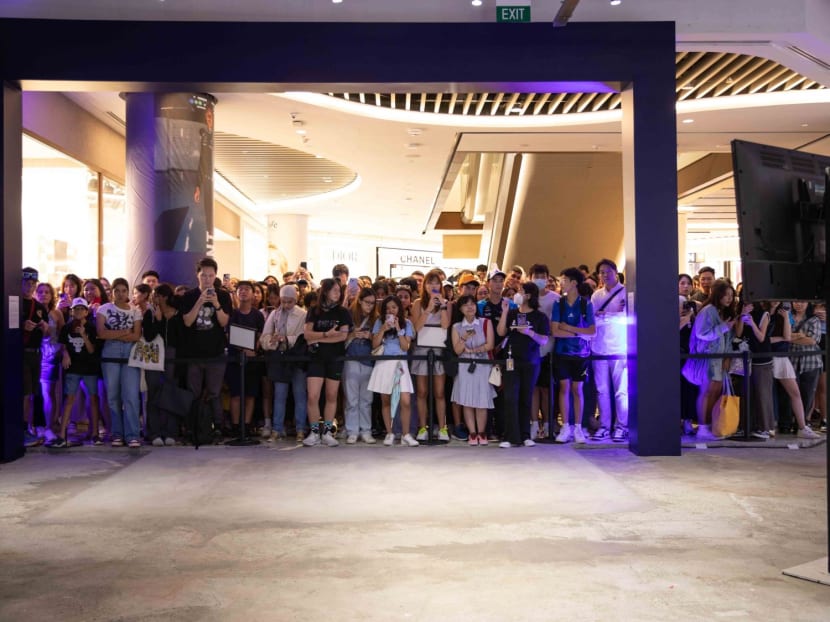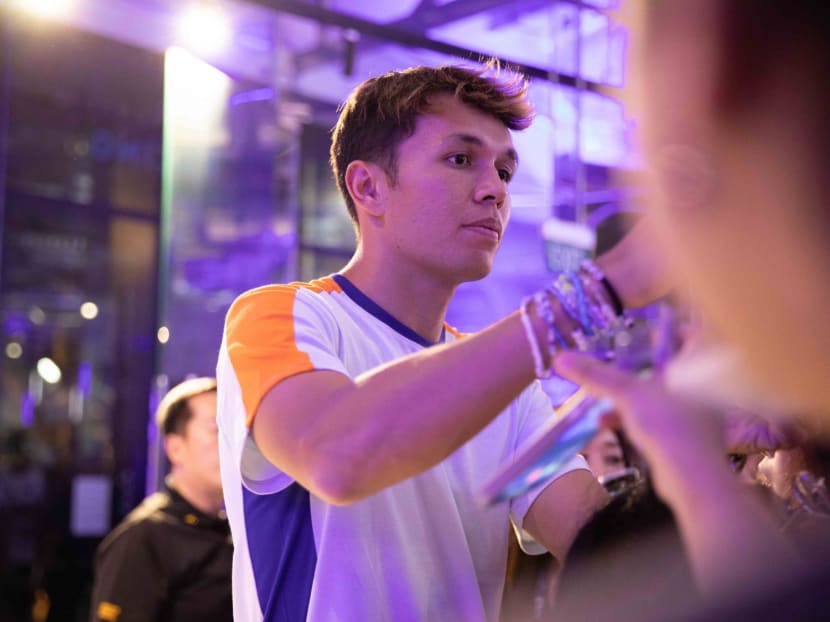Thai-British F1 driver Alex Albon speaks on his sacrifices and how the 'elitist sport' can attract more Asian talent
SINGAPORE — Asians thinking about a career in Formula One driving are still fairly rare compared to aspirants from Europe, Thai-British F1 driver Alex Albon has told TODAY.
- Asians thinking about a career in Formula One driving are still fairly rare compared to aspirants from Europe, Thai-British F1 driver Alex Albon has told TODAY
- Still, 27-year-old Albon said he's seeing signs of greater interest in countries including Thailand, and he's observing "impressive" talent coming out of mainland China
- Albon, in Singapore ahead of the F1 Grand Prix, was speaking to TODAY on Wednesday (Sept 13) at the Williams Fan Racing Zone pop-up at Raffles City Shopping Centre
SINGAPORE — Asians thinking about a career in Formula One driving are still fairly rare compared to aspirants from Europe, Thai-British F1 driver Alex Albon has told TODAY.
Still, the 27-year-old driver with the Williams Racing team said he's seeing signs of greater interest in countries including Thailand and he's observing “impressive” talent coming out of mainland China.
Albon, in Singapore ahead of the F1 Grand Prix, was speaking to TODAY on Wednesday (Sept 13) at the Williams Fan Racing Zone pop-up at Raffles City Shopping Centre.
“Three years ago, I was the only Asian on the grid, and now two more have come along,” said Albon, referring to Zhou Guanyu from China racing under the Alfa Romeo team and Yuki Tsunoda from Japan racing under the Scuderia AlphaTauri team, who are both on the 2023 grid.
Besides rooting for the upswing of Asian F1 talent, a question that crops up time and time again is Albon’s heritage. He grew up in Britain to a Thai mother and British father and now races under the Thai flag.
“It's been a talking point in my career. you know, am I Thai, am I British?” said Albon. His reply is familiar to many with a mixed heritage: "I’m both.”
An imposing 1.86m tall, he has allowed his signature platinum blonde hair to fade to a coppery brown as he wanted a break from constant dyeing.
Albon towered over swathes of excited fans patiently signing sneakers, collecting friendship bracelets and grinning for selfies.
As adoring fans stood in silence, their phones poised and recording, Albon spoke candidly to TODAY about his mixed heritage, how to attract Asian talent to F1, the elitism that exists in F1 and the immense sacrifice one has to make to enter the sport, much less succeed.

THE COSTS OF BEING AN F1 DRIVER
Aside from the lack of opportunities, there is the cost of F1 racing that makes it hard for people to enter the sport, he said.
“It’s an elitist sport; we have to be real with the fact that the amount of money needed to make it into Formula One is around US$6 million (S$8.2 million) to US$7 million to finish Formula Two to have a chance to get into Formula One,” Albon said.
These costs start when the driver starts karting at seven years of age, where the cost of the kart itself, fuel, equipment and repairs can cost as much as US$35,000. Then, there are travel and entry fees.
A karting career would last seven years, till the driver is 14 years old, and estimated costs up till then will be US$300,000 and US$400,000.
Before a driver can make it to F1 races, they would have to compete in F4 to F2 racing categories, and each season in F4 is around US$200,000 for training
From here, Formula 3 races cost US$400,000 per season before a driver makes their debut in Formula 2, which is US$2.5 million per season. Formula 2 drivers would have to race for a couple of years before they get noticed by an F1 team.
“Not many people have that kind of money,” he said. Most of these costs are usually covered through sponsorships if companies believe the racer is talented enough. Otherwise, it is usually through family wealth.
Albon added there needs to be a more concerted effort by companies and businesses to believe in young talents and create opportunities for engineers, mechanics and even in marketing to “introduce the world to our sport.”
“There's so many avenues you can go down in motorsport, it's an amazing sport. If we can guide people the right kind of way to get into the sport, I think it could be amazing.”

THE SACRIFICES OF A F1 DRIVER
Albon started his racing journey at the tender age of eight in competitive karting and worked his way up from single-seater Formula 3 races to the Formula 2, clinching third place in the 2018 season of the Formula 2 Championship.
This impressed the Italian F1 team, Scuderia Toro Rosso, who signed him in 2019. He made his debut that year in the Australian Grand Prix before joining Red Bull Racing and then Williams.
He secured his first podium finish in 2020 — a first for a Thai driver — at the Tuscan Grand Prix, then later again at the Bahrain Grand Prix.
The commitment to F1 racing is more than just money, said Albon. “It's not great for school life. You start to miss more and more days of school, and you start to go to more and more races.”
He added: “There becomes a point in life where you need to start to commit and say, ‘Am I going to do racing full time or not?’”
Albon said that choosing racing as a career requires a huge sacrifice by one's family and those around you.
"You can't turn back as soon as you make that decision. You have to try to make it work,” he added.
“A lot of people don't make it in the end. I don't think I would like my kids to race because I know how difficult it is to get to the top.”
At this point, for Albon, who has been racing for nearly his entire life, it is difficult for him to imagine doing anything else.
“I think don't about it so much, it's a scary thing to think about to some extent.”
ATTRACTING ASIAN TALENT TO F1
In F1 history, there have been only 28 Asian drivers, dominated by Japan with 21 drivers, followed by two each from India and Thailand. That's out of 775 F1 drivers throughout the sport's history.
Malaysia, China and Indonesia have produced one F1 driver each. The reason for these low numbers is not due to a dearth of talent but rather a lack of opportunity for talent to enter the world of F1.
“The more people we can create opportunities for, men and women, we should have a chance to see more Asian talent come through,” Albon said.
While Albon feels strongly for both his ethnicities, seeing as he grew up in Britain, having spent more time in Thailand with extended family recently has made him feel more connected to his Thai roots.
“I feel deeply rooted in Thailand. When I am in Thailand, I feel at home, the people are so warm and loving. It feels like me,” said Albon.
“I am both (Thai and British), but at the end of the day, you have to choose one in our sport. I'm very proud to hold the Thai flag when I'm racing.”











